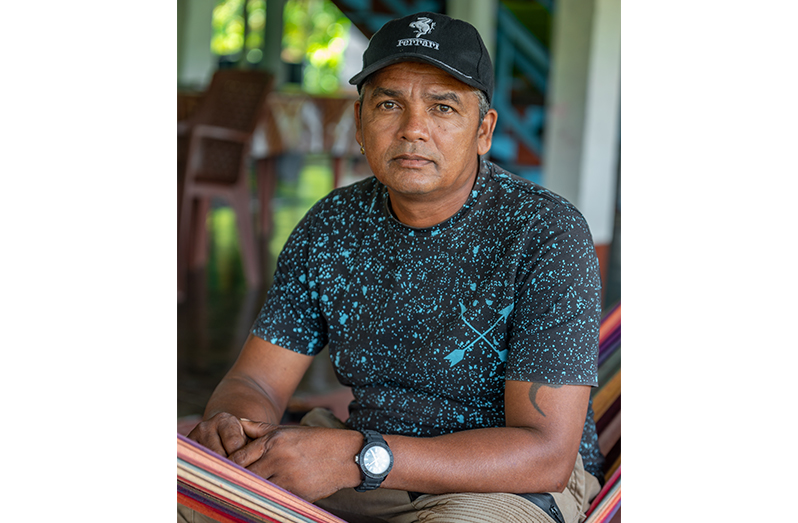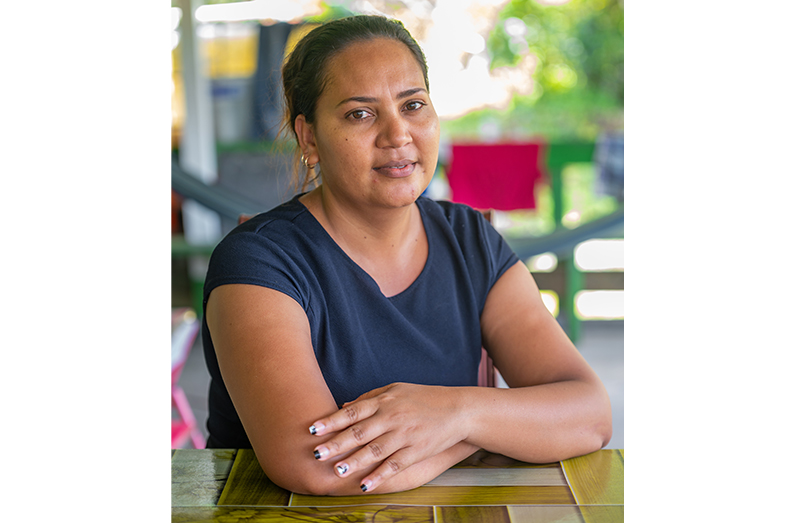Navigating the ups and downs
ANUDAI Lochan is a teacher attached to the Lower Bonasika Nursery/Primary School and she has a vested interest in moulding the minds of the young as a form of preparation for the world of work.
The 32-year-old stated that she has been in the noble teaching profession since age 16 and has always liked nurturing children.
She explained that she is passionate about teaching and she doesn’t mind the commute via boat five days per week.
Lochan, better known as Miss Annie, reported that she went to Leonora Secondary School because there is no secondary school in Bonasika Creek.
But the creek has always been her home. She lives comfortably in a house in the same yard with her in-laws which overlooks the creek — quite a lovely view.
Lower Bonasika Creek School is a multi-grade school and she assists in both nursery and primary teaching.
They have 68 learners with only five teachers; the head teacher is from Zeelugt, East Bank Essequibo.
They have no internet at the school, but they have four 65-inch televisions with access to the learning channel programmes and discs are used to promote learning.
Lochan related that they will be hosting a fundraiser to install internet at the school from a private internet provider.
The mother of two stated that she likes the quietness of the creek and teaching despite the challenges; it is her way of giving back to the community.
The farmers
Rampattie Sanicharia and her husband, Dinesh Ramlakhan have a simple way of life which includes farming and making pointer brooms and they reside in Lower Bonasika Creek, Essequibo River.
The 33-year-old told the Pepperpot Magazine that together they have crops of coconuts and citrus.
Dinesh Ramlakhan explained that after the flood which destroyed his crops, yields leave much to be desired for the past two years and the coconut trees are dying rapidly from an unknown disease plaguing the farm.
He added that he has 18 months, three years and five years of coconuts and a lot of trees are rotting away, and they are trying newer drugs to reduce the spread of both bugs and disease.
Ramlakhan stated that he would sell the produce to wholesale buyers at Hubu Koker whenever he has a good harvest.
He related that they have been unable to make a good reaping for the past year since most of the cultivation is perishing. As a result, they haven’t made any profit.
In addition to the mysterious disease that is overwhelming the farm, they have a cockle infestation, resulting in the eating away of all the young plants and trees.
Ramlakhan stated that he is working with representatives from NAREI to try newer drugs to combat the disease that is overtaking the farm presently.
With all these challenges, the couple cannot employ workers as they used to, so they have to do all the work themselves.
Apart from working on the farm and doing chores, Rampattie Sanicharia would make pointer brooms from branches sourced from the coconut trees on their farm to sell.
“With children to send to school, the cost of fuel, the increase in food items things haven’t been as viable as it used to,” she said.
Omar Hussain, the citrus farmer
As a father of three, Omar Hussain’s only source of income is farming and he has five acres of ground provisions, cash crops and citrus.
The 53-year-old has lived all his life in the creek and a typical day starts at 05:00hrs daily when he would be on the farm, tending to crops before sunrise and he would usually have to walk to get there.
He reported that the only job in that part of the country is farming and he grew into it since he came from a family of farmers and today, although they don’t have a lot of things, they live in quiet peace in a creek, which is very expensive to commute and buy essentials.
“This place nice but there is nothing for the youths to do. They drop out of school due to poverty and left to do whatever and most of them end up abusing alcohol and illegal substances and become a nuisance to society,’ he said.
Hussain pointed out that there is a great need for a place to have skills training and other remedial programmes to give them a second chance at careers and futures.
He added that only GTT has a fair signal in Bonasika Creek and the cellphones would have to be placed at a certain point to get signals to make and receive calls, their only connectivity to the outside.
Ramkumar Singh, the farmer
The 54-year-old farmer described life as fair in Bonasika Creek, Essequibo River, but as it relates to his farm at High Level Canal, he is denied access due to illegal dumping of waste.
Often his crops are left to rot because he cannot get to the farm and he would incur a lot of losses that cannot be regained.
He has crops of ground provisions and citrus on a four-acre plot. He reported that farming is an expensive venture from sowing to harvesting and they are happy they received cash grants and a boost to the drainage and irrigation network to reduce flooding.
Singh told the Pepperpot Magazine that small-scale farmers like himself suffer a lot of loss and the vegetation that is being cleared in Bonasika needs to be disposed of properly so he can get to his farm at any given time.



.jpg)














